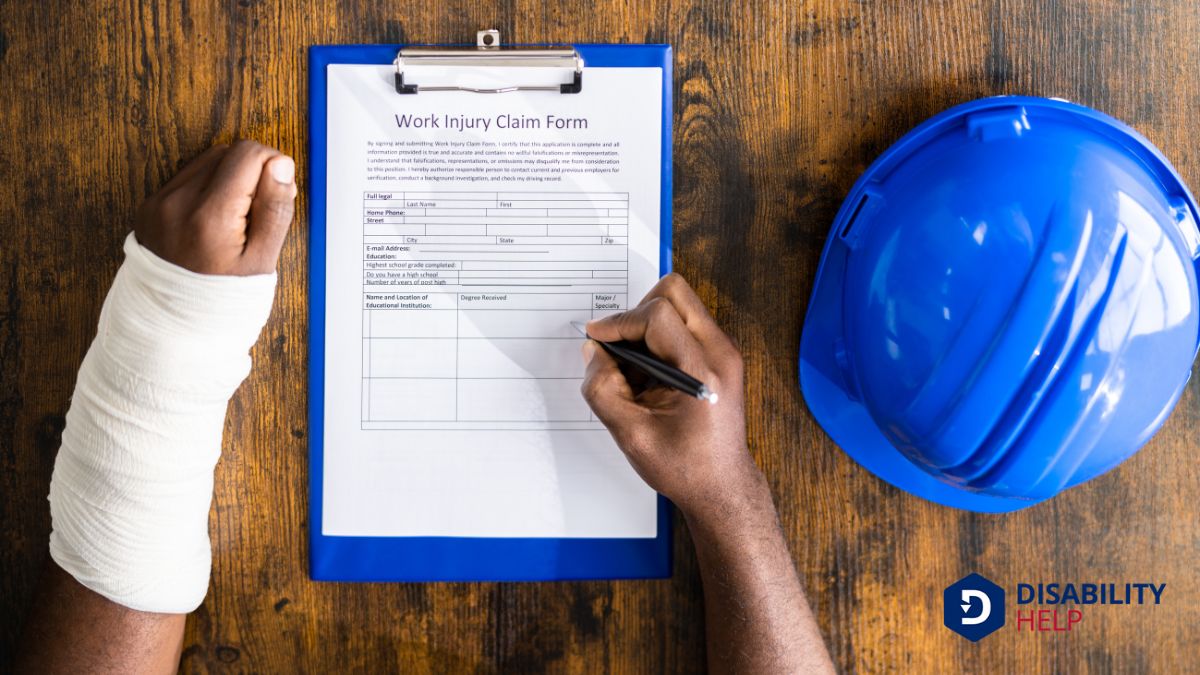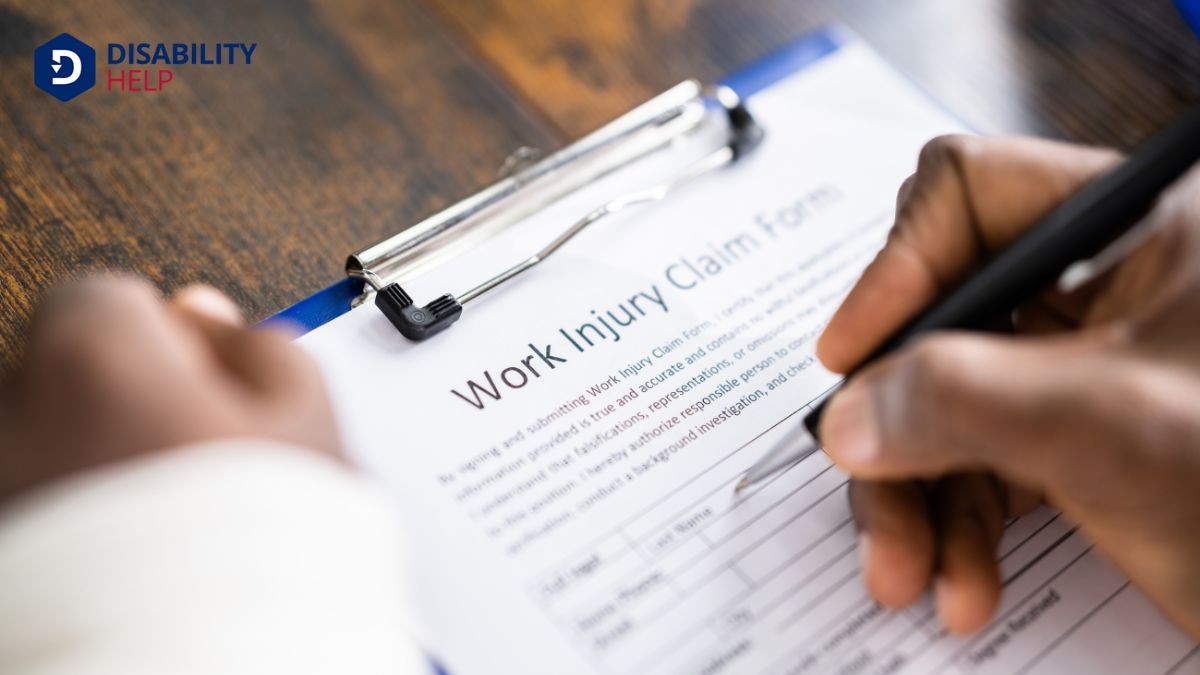Let's talk about the steps to claim workers' compensation, which can seem challenging but are manageable with the right approach. First, we need to promptly report any work-related injuries to our employer, ensuring we provide specific details. Seeking immediate medical treatment and clearly stating the injury is work-related is essential. Accurate documentation and timely communication help streamline the process. But why is the information packet from the insurance carrier so important, and what should we expect in the claim decision phase? There's more to uncover about handling this process smoothly.
Key Takeaways
- Promptly report the injury to your employer within 30 days, providing specific details like date, time, and location.
- Seek immediate medical treatment and inform the healthcare provider that the injury is work-related.
- Keep detailed records of all medical treatments and follow the doctor's recommendations.
- Review and complete the insurance info packet, including signing the medical records release form.
- Communicate regularly with your employer and Workers' Compensation carrier about your medical condition and any changes.
Report the Injury

Frequently, the first pivotal step in claiming workers' compensation is to report the injury to your employer promptly, usually within 30 days of the incident. It's crucial to provide specific details such as the date, time, type, and location of the injury. This timely reporting plays a fundamental role in initiating the workers' compensation claims process.
When we promptly report our injury, it helps our employer and the workers' compensation system determine our eligibility for compensation benefits. We can report our injuries to Human Resources (HR)The department within a company responsible for managing employee relations, benefits, and complianc..., our manager, or a designated safety representative. Ensuring that the report is made quickly helps in documenting the incident accurately, which can be essential for our claim.
The importance of timely reporting can't be overstated. It not only sets the claims process in motion but also demonstrates our commitment to following proper procedures.
Delayed reporting might complicate our claim or even jeopardize our eligibility for workers' compensation benefits.
Seek Medical Treatment
Once we've reported our injury, the next vital step is to seek immediate medical treatment.
It's important to inform our healthcare provider that the injury is work-related. By coordinating closely with them and following the prescribed treatment planA detailed plan developed by healthcare professionals to treat a specific health condition, outlinin..., we guarantee our claim is well-supported.
Immediate Medical Attention
Seeking immediate medical attention is important when dealing with work-related injuries. The first thing we should do is get medical attention right away. This guarantees that our injuries are properly assessed and treated, which is essential for our recovery and rehabilitationThe process of helping individuals with disabilities achieve and maintain their optimal physical, se.... It's not just about feeling better quickly; timely medical treatments can prevent complications and speed up our return to work.
Once we're in the hands of healthcare professionals, it's significant to guarantee proper documentation of all medical treatments received. Keeping detailed records won't only help in our recovery but also serve as crucial evidence when filing for workers' compensation. These documents include doctor's notes, prescriptions, and any other medical records related to our condition.
Following our doctor's recommendations is crucial for effective recovery. Whether it's medication, physical therapy, or rest, adhering to these guidelines will help us get back on our feet faster. Additionally, we should keep all medical records and receipts for potential reimbursement.
Lastly, we must inform our employer about our medical treatment and provide regular updates on our condition. Keeping our employer in the loop helps in coordinating our return to work and ensures we're following the correct procedures for claiming workers' compensation.
Coordinating With Healthcare Providers
Promptly coordinating with healthcare providers after a work-related injuryAn injury that occurs in the course of employment, potentially leading to temporary or permanent dis... is pivotal to receiving the necessary treatment and follow-up care. When we experience a work injury, the first step is to seek immediate medical treatment to safeguard our health and create indispensable documentation. Accurate and timely documentation is crucial for our Worker's Compensation claim.
We should provide detailed information to our healthcare providers about our work injury, including how and when it occurred. This ensures that our treatment plan aligns with the specific nature of our injury. Clear communication with healthcare providers is essential to receiving the right treatment and follow-up care.
Keeping detailed records of all medical treatments, medications, and healthcare provider recommendations is indispensable. These medical records serve as evidence in our Workers Compensation claim and help track our recovery progress.
If our condition or treatment plan changes, it's vital to communicate these updates to our employer and the Worker's Compensation carrier promptly.
Employer's Documentation
When it comes to claiming workers' compensation, employers' documentation is an important step that can't be ignored. The employer's role in providing necessary documentation is vital for a smooth and efficient claims process. This includes detailed employee information, job details, injury specifics, and records of medical care received.
Timely and accurate documentation is crucial for determining eligibility for workers' compensation benefits and ensuring fair compensation. Specifically, employers need to focus on:
- Employee details: Accurate personal and job-related information.
- Injury specifics: Clear and detailed descriptions of the incident.
- Medical care: Thorough records of all medical treatments provided.
- OSHA reporting: Compliance with reporting requirements for serious injuries and fatalities.
Employers must make sure that all required documentation is submitted promptly. This not only helps in the quick processing of compensation claims but also guarantees that the injured employee receives the necessary support and benefits without undue delay.
Proper documentation aids in validating the claim and plays a significant role in the overall workers' compensation process. By fulfilling these responsibilities, employers facilitate a fair and transparent system for addressing workplace injuries and providing appropriate compensation.
Receive Info Packet
One of the vital steps in the workers' compensation claims process is receiving the info packet from the insurance carrier. This initial claim information packet is important as it contains everything we need to navigate the claim process smoothly. As soon as we receive this packet, it's crucial to open it promptly and review its contents carefully.
First, the packet includes essential contact information for the worker's compensation insurance carrier. Knowing who to reach out to with questions or concerns can make a significant difference. Additionally, the packet outlines our rights and benefits, making sure we comprehend our entitlements under the claim.
Another key component is the details about the return-to-work process. This helps us plan our recovery and eventual return to our jobs.
The packet also contains a medical records release form, which we need to sign and submit so the insurance carrier can access our medical records for further processing of the claim.
Importantly, the packet includes a fraud statement. It's vital to read and acknowledge this statement to avoid any potential legal issues. By promptly reviewing and understanding the claim information, we guarantee a smoother handling of our workers' compensation claim.
Claim Decision

The claim decision represents a pivotal juncture in the workers' compensation process. This is where the insurance carrier steps in to investigate the accident or injury thoroughly. They're tasked with determining if your injury is indeed a work-related injury. They'll look at the specifics, ensuring the incident aligns with workplace conditions and duties.
During this process, the insurance carrier focuses on:
- Fraud detection: Ensuring there are no deceptive claims.
- Timely decision-making: Making decisions promptly so you can receive benefits without unnecessary delays.
- Accurate decision-making: Ensuring the decision is just and based on precise information.
- Providing benefits: Ensuring you get the appropriate compensation if the claim is approved.
We know how vital it is to have a timely decision-making process. No one wants to be left in limbo, especially when dealing with a work-related injury. That's why the insurance carrier's accurate decision-making is key.
It's not just about getting compensation; it's about receiving fair compensation.
Return to Work Plan
After receiving a decision on your workers' compensation claim, the next step is to focus on getting back to work safely and effectively. A Return to Work program is a collaborative effort involving employees, employers, and the insurance carrier. Together, we tailor the plan to match the injured employee's health status and job requirements, ensuring a safe return.
One key element is the provision of light-duty assignments. These assignments accommodate any temporary restrictions and help ease the shift back to work.
Constant communication is vital throughout this process. Regular updates and Employer Reports keep everyone informed about the employee's health status and progress.
It's important for all parties to stay engaged in the Return to Work program. This includes discussing any adjustments needed to the job requirements to support a safe return.
By maintaining open lines of communication, we can address any concerns promptly and make necessary modifications.
This collaborative approach benefits both the employer and the injured employee. The employer can retain a valuable team member, while the employee can regain their routine and independence. Ultimately, a well-executed Return to Work plan facilitates a successful and safe return to the workplace.
Frequently Asked Questions
How do I report a workplace injury to my employer?
- Report your injury in writing, providing details about the incident, including the date, time, and circumstances of the injury. Ensure to keep a copy of this report for your records. Your employer should then provide you with the necessary workers' compensation claim forms to fill out and guide you through their process.
What forms do I need to fill out to file a workers' compensation claim?
- Typically, you will need to fill out a workers' compensation claim form, which your employer should provide. This form will require detailed information about your injury and how it occurred. Make sure to fill out this form thoroughly and accurately to avoid any delays in your claim.
What happens after I submit my workers' compensation claim?
- After submitting your claim, it will be forwarded to the workers' compensation insurance company. The insurer will evaluate your claim to determine if your injury is covered under the policy. During this process, you may be required to undergo an independent medical examination (IME) to confirm the details of your injury.
Can I appeal if my workers' compensation claim is denied?
- Yes, if your claim is denied, you have the right to appeal the decision. Each state has its own procedures for appealing workers' compensation claims. Typically, this process involves filing a formal appeal with your state’s workers' compensation board and may require attending hearings where evidence can be presented.
Conclusion
To sum up, we need to promptly report any work-related injuries, seek immediate medical treatment, and coordinate closely with our employer and healthcare providers. Let's carefully review the information packet from the insurance carrier and understand the return-to-work process. By staying proactive and ensuring timely communication, we'll navigate the claims process smoothly and secure the compensation we deserve. Remember, each step is vital for a successful workers' compensation claim. Let's take action and protect our rights.






